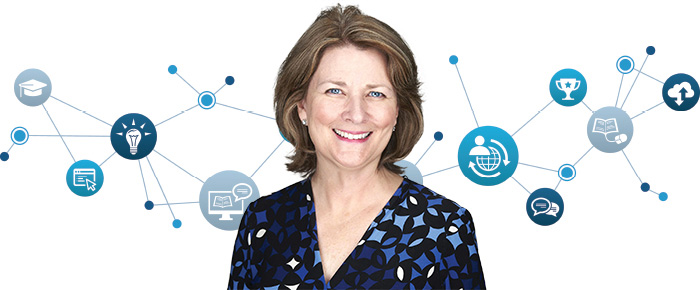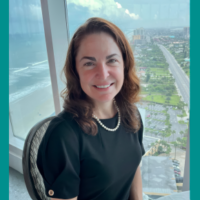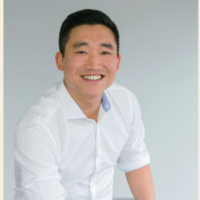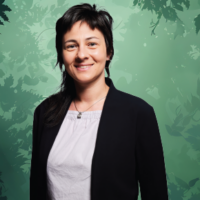
ACAMS Today interviewed Heather Carroll to discuss her career in instructional design and the most important component of a certificate/certification. Carroll joined the ACAMS Product Development team in September 2016. She initially worked on the team that pioneered ACAMS’ Certificate courses, including Anti-Bribery and Corruption as well as Virtual Currency and Blockchain. Most recently, Carroll has been working with subject-matter experts to create training courses in multiple delivery formats to support ACAMS Associate-Level and Specialist-Level Certification programs. In addition, she is coordinating the effort to translate ACAMS courses into several languages. In April 2021, Carroll was promoted to lead instructional designer and is responsible for guiding the internal team of designers on course development processes and quality.
Over the course of her career, Carroll has served as a business development representative and an instructional design consultant for companies such as Harvard Business Publishing, United Airlines, McDonald’s, General Motors, Bank of America and State Farm. She is passionate about continuing education and supporting nontraditional learners with technology-assisted courseware. Carroll holds a master’s degree in education and a Bachelor of Arts from the University of Illinois at Urbana-Champaign.
ACAMS Today: You will soon be celebrating five years with ACAMS. What is your favorite part of your job?
Heather Carroll: Five years have flown by! My favorite part of my job is working with my awesome team members. We are primarily based in home offices, across three time zones in the U.S. and in China, yet we share a commitment to creating high-quality, engaging courses for our members. And we frequently jump in to assist when a team member has a deadline. There are no “whiners” on our team; everyone has a “can-do” attitude. To stay connected, we usually meet in person at least once a year, but COVID-19 has put a stop to that. I look forward to reconnecting with the team sometime in the near future. Meanwhile, we have to settle for communicating via Microsoft Teams and Zoom.
AT: Tell us what led you to a career in instructional design?
HC: In the late 1990s, I was developing new business for an educational publishing company that provided leadership development courses via CD-ROM. The company was committed to employee development, so I decided to enroll in an online master’s in education program for working adults. My intention was to understand the needs of my Fortune 500 clients, but I discovered that I loved analyzing business problems and creating engaging content. Since I traveled for my job, a traditional classroom program was not feasible. I needed the flexibility to listen to lectures and submit assignments on my schedule. The University of Illinois College of Education was experimenting with online learning and our group was the first cohort to participate. So, I guess I was an e-learning pioneer. I must admit there was a lot of “learning while doing” for the students and the professors. For example, there was no “high-speed” internet back then. I had a dial-up modem and often had to submit assignments by typing into a web form. If you lost your internet connection before you were finished, you’d lose your assignment! As a result, we learned to create Microsoft Word documents and upload them instead. Despite the occasional hiccups, I was able to discover my passion for continuing education.
My experience with online learning gave me new insights into the user experience, and the best practices for developing and deploying online learning to a widely dispersed audience. Now I get to apply my experience to help working professionals attain important industry certifications that will help them to be more successful in fighting financial crime.
AT: What are the most important components of a certificate and/or certification?
HC: Certificate courses are worth four credits and help our members establish foundational knowledge of a topic, such as know your customer. The courses cover skills that benefit new and experienced professionals. Members can take them to stay informed of regulatory requirements and to discover emerging risks. In addition, people who already have their Certified Anti-Money Laundering Specialist (CAMS) Certification can take certificate courses to recertify their CAMS designation.
Certification programs are broader, and help our members meet the core competencies of the subject matter. We work with successful practitioners to determine the essential job tasks and the importance of those tasks. This process helps us to create relevant content and properly weighted exam questions. Candidates are required to pass an exam before attaining their certification. ACAMS provides certifications at the Associate, Specialist and Advanced levels.
I think the most important component of an ACAMS’ Certificate or Certification is the message that it sends to governments, regulators and the industry that you are, or your organization is, committed to fighting financial crime.
AT: Do you have a favorite certificate or certification?
HC: My favorite certificate course is the first course that I developed, “Transaction Monitoring.” I worked with two subject-matter experts: a former FBI special agent from the U.S. and the head of financial crime control operations for a large financial institution in the United Kingdom. To create the initial course outline, I interviewed a number of experts from law enforcement, financial services and regulatory bodies. This gave us a broad perspective that helped us meet the needs of our global audience. And we discovered that one of our subject-matter experts had a natural talent for voiceover!
AT: How has the product development team adapted to COVID-19 challenges?
HC: Our team was primarily remote, so we were well-positioned to adapt to COVID-19 challenges. We quickly understood that our members have been affected, and that compliance is still essential, even during a global pandemic. We revised our product development process, which has enabled us to release courses more quickly, and to offer our courses and support materials in multiple delivery formats and in multiple languages. In addition, we transitioned to online proctoring for our certification exams, so candidates can take exams without going to a test center. We knew the “bad actors” were not taking time off so we worked diligently to make sure our members could get the skills that they needed.
AT: Could you share any news on new certificates or certifications on the horizon?
HC: I am pleased to announce that ACAMS just released our Certified AML FinTech Compliance Associate program, CAFCA. I helped develop this program, which is designed to meet the unique needs of the rapidly growing fintech sector. We partnered with FINTRAIL, a specialist fintech and regtech consultancy, to develop this exciting program. CAFCA is currently available in English, and additional languages will be available in the near future.
AT: What do you like to do when you are off the clock?
HC: I enjoy outdoor cycling, playing with our dog, Penny, attending live theater and visiting the many museums in and around Chicago. When the weather permits, my husband and I spend a lot of time hiking and biking at the Morton Arboretum, a 1700-acre tree sanctuary. We are looking forward to the arrival of our fourth grandchild, a boy, this July.
Interviewed by: ACAMS editorial staff, FL, USA, editor@acams.org










